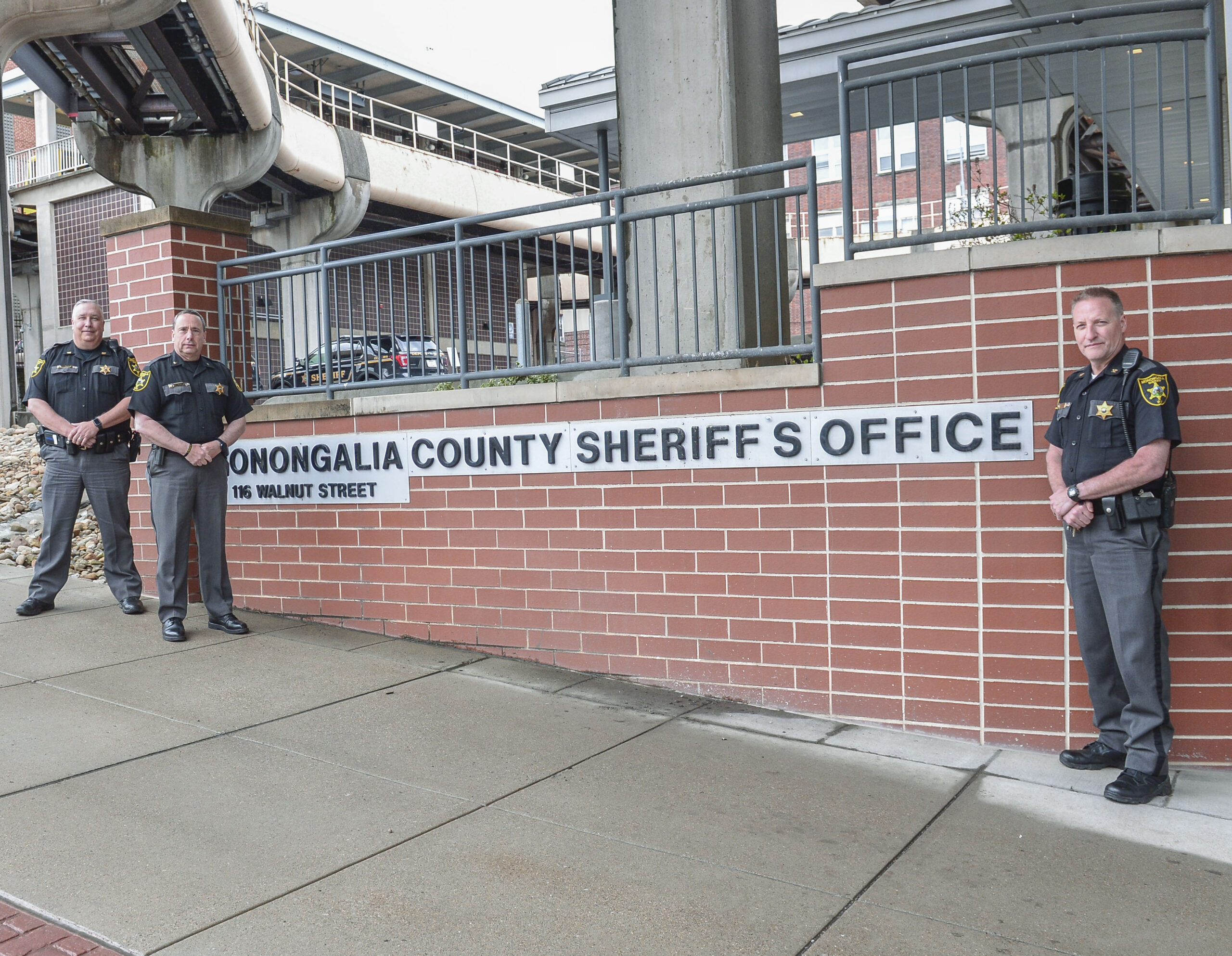Earlier this month, the Monongalia County Sheriff’s Office charged three people in a string of catalytic converter thefts around the county.
Catalytic converters are designed to act as a line of defense against harmful exhaust system emissions by turning pollutants into harmless gasses, according to Cars.com.
Detective Stephen Currie said the part contains valuable platinum group metals, such as rhodium, palladium and platinum, which thieves can sell to a recycler — in the Morgantown area they tend to go to recyclers in Pennsylvania — for about $100-$600. On Friday, platinum was worth $1,200 an ounce.
Stealing the part isn’t hard. Currie said in the thefts where they have video it just takes a few minutes under the car with a battery-powered saw.
The sheriff’s office has taken more than 30 reports of stolen catalytic converters in 2021, with another 5-10 thefts being reported after the press release regarding the charges. Currie said West Virginia is not alone in seeing an increase in thefts of the part — it’s a national trend.
An internet search Friday turned up at least seven news reports from the past 24 hours about arrests for catalytic converter thefts in states such as Missouri, New York, Colorado, and Florida.
A thief may get a max of $600 for his or her efforts, but the victim is out at least $1,000.
Newer vehicles and vehicles registered in states such as California and New York, which have higher emissions requirements, are more expensive, said Kevin Freeman, manager of South Park Service Center. He said replacing a catalytic converter, which is required under federal emission laws, costs $1,000-$3,000.
Cutting off the converter can also cause damage to the car beyond the obvious loss of the part being stolen, such as cutting emission sensor wires, Freeman said.
Currie said the thefts happened all across the county, but some areas of focus were around West Virginia University’s law school, the hospitals, vehicles left on the side of the road, and at park-and-rides.
There are steps people can take to protect their vehicles. Currie said literature on the issue suggests parking in secured areas such as a garage. If that’s not possible, try to park in a well-lit lot with cameras. Some people also etch the vehicle’s VIN or license plate number onto their catalytic converter.
Sheriff Perry Palmer said the department’s detectives started working the case in January when thefts ramped up. Road deputies would take reports and detectives would go out at all hours to interview and investigate. The department also worked with other law enforcement agencies in what he called a countywide law enforcement effort.
Technology also played a role in solving the case. Palmer declined to share specific details about the technology on-the-record but said state-of-the-art software his detectives convinced him to buy really helped.
“If you didn’t have it, you couldn’t do it,” Detective Pete Tennant said of the technology’s capabilities.
Anyone with information regarding catalytic converter thefts and/or storage-unit thefts that has not previously been reported to a law enforcement agency should contact detectives at 304-291-7218.
TWEET @DominionPostWV




